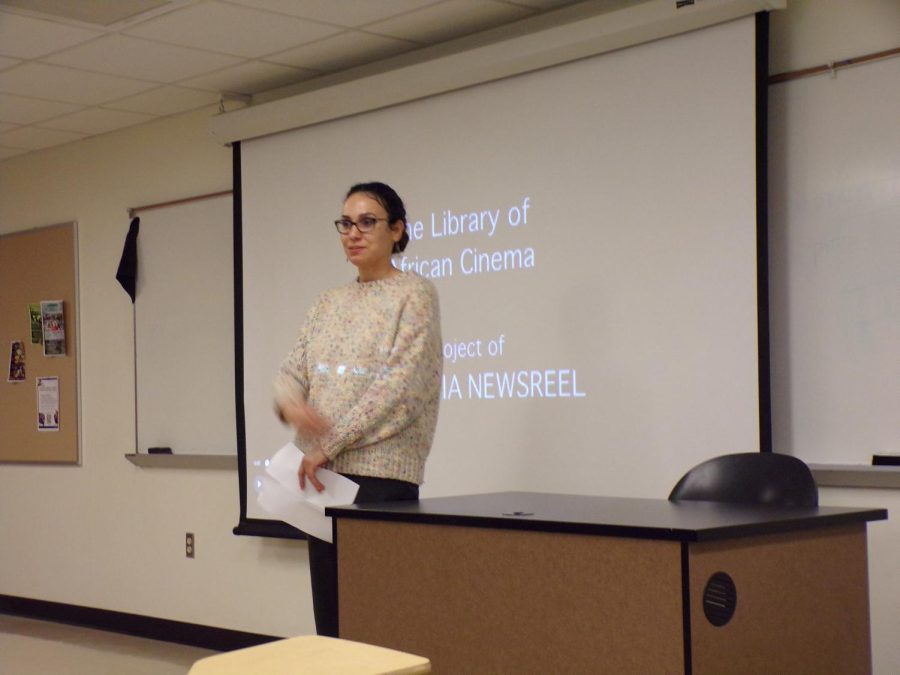Pan-African festival shows “Faat Kiné” for African Cinema Night
Ikram Toumi, associate professor of communications studies, about to present African movie night.
April 23, 2023
During this year’s Pan-African Festival, the film “Faat Kiné,” which depicts a post-colonial Senegal and the place of women within that society, was shown during African Cinema Night Wednesday.
The film shows three generations of women: a grandmother, mother and daughter – all who have grown up during different times in Senegal, and they only have each other for support.
“The narrative about the culture of Africa is always from a very negative perspective,” said Felix Kumah-Abiwu, an associate professor in the Department of Africana Studies. “We wanted to give students the opportunity to see that Africa is almost like here. People are concerned about their lives, they live in cities, they live in places that can be comparable to more advanced countries. So, the whole idea is just to present this opportunity for our students to have a better understanding of the continent of Africa.”
The Center for African Studies hosted the Pan-African Festival along with collaborations with the Department of Africana Studies, the School of Communication Studies, the Department of English and the Department of History. The festival has different events each night of the week ranging from a Creative Writing Workshop and African Cinema Night to a Poetry Night.
The movie “Faat Kiné” tells the story of a woman named Faat Kiné who works against social standards and becomes a successful owner of a gas station in a largely patriarchal society. She does this all while raising her two children on her own.
It is directed and written by Ousmane Sembene, who was referred to as “the father of African film” by Ikram Toumi, an assistant professor in the School of Communication studies.
This year’s theme for the festival was “Under the Baobab: Poetry Festival at the Ritchie.”
Toumi said “Faat Kiné” was chosen as the film this year because each year the Center for African Studies shows a movie from a different region on the African continent.
“This movie is a classic, and we showed a movie from Algeria and a movie from Congo last year,” Toumi said. “We wanted a different movie from the African continent, and Sembene is called the ‘father of African cinema,’ so we wanted to show one of his films, a classic.”
The idea of African Cinema Night was to present the alternative narrative about the culture of Africa.
Babacar M’Baye, a professor and chair of the Department of English, said African cinema is like an opening door to the study of understanding African values.
“Most African filmmakers are intellectuals at the same time and artists,” M’Baye said. “They have attempted to kind of make sense of the different complexities of their societies; in terms of art, or the search for what material is the most important of African societies.”
Toumi said she knows the power of stereotypical representations of the African continent in particular.
“We thought this was a good way to show students a different Africa from the lens of African directors and African people,” she said. “The movie was trying to show an authentic life and the journey of different generations in one of the African countries and I think that’s what people need to see more of; generations that are trying to fight the traditional views of women in a patriarchal society.”
“Faat Kiné” shows a future about hope and liberation and the struggle against the past, future and present, said an article from the African Film Festival’s website.
The Center for African Studies plans on organizing events like the movie screening and showing films from different regions in Africa, said Toumi.
Molly Hoffer is a reporter. Contact her [email protected].












